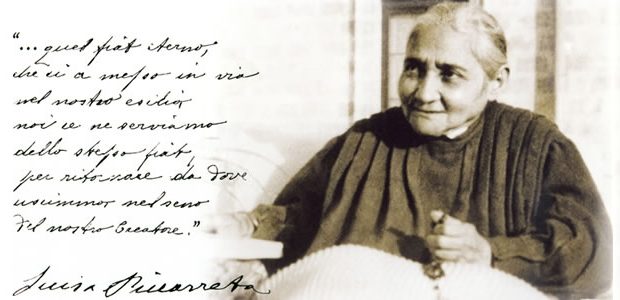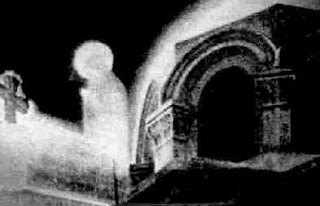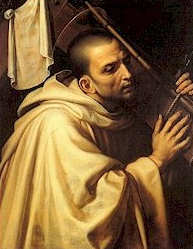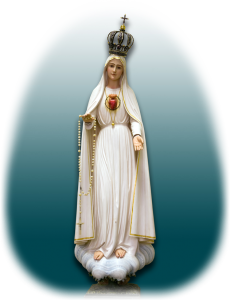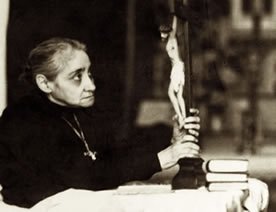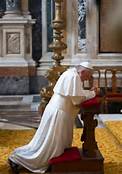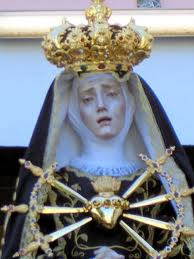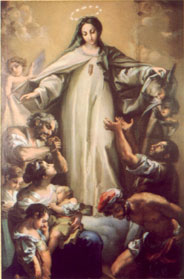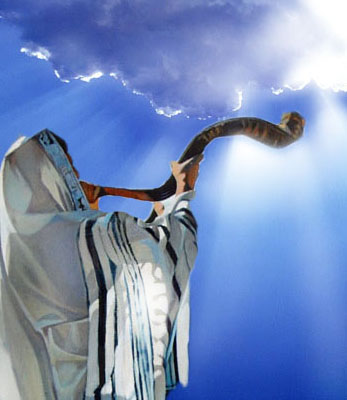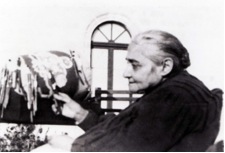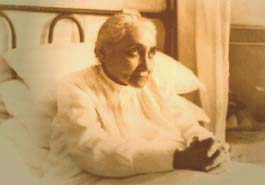Prayer for Peace throughout the world to Our Heavenly Father in the Name of Jesus Christ, the King of Kings and Our Blessed Mother, Queen of Peace, Mother of All Nations, Our Lady of America, Our Lady of Syria, Our Lady of Victory, and Our Lady of Fatima through the intercession of the Servant of God Luisa Piccarreta, the little daughter of the Divine Will by the Power of the Holy Spirit
***Luisa please intercede before the Throne of God for Peace throughout the World.
Beloved Jesus, You are the Prince of Peace. It is You alone united with Our Blessed Mother, The Queen of Peace who can bring True Peace to the world.
In Your great Love for The Little Daughter of the Divine Will, the Servant of God Luisa Piccarreta, You gave her the Power over Your Sacred Heart to draw You to herself and to do what she wants (V2 – 8.21.99). It is Luisa in whose Power is the Holy Will of God. (V6–7.14.04). You said “ask and we shall receive…,” and that “if two of you join your voices on earth to pray for anything whatever, it shall be granted you by My Father in Heaven”; and “where two or three are gathered in My Name, there I AM in their midst.” We beg You now with great confidence and hope in Your Holy Name, together with Our Blessed Mother, the Virgin Mary, and under the titles that you bestowed on Her and little mama Luisa please bring Your Peace to the world.
Jesus and Mary, we echo Your words to Luisa Piccarreta from The Book of Heaven, that she is the soul, born in original sin, who is Totally and Completely Consumed in the Divine Will, Where there is no Greater Power on Heaven and Earth than this Soul (V9–11.1.10). ***
Jesus and Mary, we echo Your words to Luisa that she is the One Who Takes Part in Jesus’ Power and Keeps herself and All Things at her Disposal (V11–2.24.12). ***
Jesus and Mary, we echo Your words to Luisa that she is the Patience of the Sick (V11–3.15.12). ***
Jesus and Mary, we echo Your words to Luisa that she is the Soul Who Has the Power to Give Life to Good and to Give Death to Evil (V13–5.1.21). ***
Jesus and Mary, we echo Your words to Luisa that she is in Jesus’ Arm and will Make Works of Power (V13–11.8.21). ***
Jesus and Mary, we echo Your words to Luisa, who the demons Know by the Power of Jesus’ Will that they Feel in her (14–3.10.22). ***
Jesus and Mary, we echo Your words to Luisa the Daughter of Jesus’ Power (V14–5.15.22). ***
Jesus and Mary, we echo Your words to Luisa, Who Has Jesus’ Whole Will in her Power (V14–9.24.22). ***
Jesus and Mary, we echo Your words to Luisa, in Whose Power Jesus Gives His Will to (V16–8.1.23). ***
Jesus and Mary, we echo Your words to Luisa, Who the Power of the Divine Will is in (V17–8.4.25). ***
Jesus and Mary, we echo Your words to Luisa, in Who All Feel the Power of the Divine Will Operating (V18–2.11.26).***
Jesus and Mary, we echo Your words to Luisa, Who Holds the Divine Will in her Power (V21–5.8.27). ***
Jesus and Mary, we echo Your words to Luisa, the Soul in Whom the Divine Will Carries Out Its Power, Its Divine Operating (V22–7.10.27). ***
Jesus and Mary, we echo Your words to Luisa, the Soul Who has Everything in her Power (V24–5.13.28). ***
Jesus and Mary, we echo Your words to Luisa, the Soul Who Possesses the Divine Fiat, Who has Such Power to Shatter the Diabolical Power to Pieces (V26–5.25.29). ***
Jesus and Mary, we echo Your words to Luisa, the Creature Who Duplicates the Divine Majesty’s Power (V27–10.18.29). ***
Jesus and Mary, we echo Your words to Luisa, Whose Littleness Flows in the Triune God’s Power (V27–1.16.30).***
Jesus and Mary, we echo Your words to Luisa, Who Finds a Divine Will in her Power (V29–9.7.31). ***
Jesus and Mary, we echo Your words to Luisa, Who Holds the Disarming Power (V30–4.23.32). ***
Jesus and Mary, we echo Your words to Luisa, Intermediary Who with the Power of the Divine Fiat Wants to Bind Heaven and Earth (V31–10.30.32). ***
Jesus and Mary, we echo Your words to Luisa, Who has Eternity in her Power (V31–11.6.32). ***
Jesus and Mary, we echo Your words to Luisa, Who has Jesus’ Works in her Power (V31–11.13.32). ***
Jesus and Mary, we echo Your words to Luisa, Who has the Celestial Mama’s Acts in her Power (V31–11.13.32).***
Jesus and Mary, we echo Your words to Luisa, Who has the Acts of the Souls Who Live of Divine Will in her Power (V31–11.13.32). ***
Jesus and Mary, we echo Your words to Luisa, the Creature Who Holds Everything in her Power and Can do Everything (V31–11.20.32). ***
Jesus and Mary, we echo Your words to Luisa, the One Who Has Sanctity, in her Power (V32–8.20.33). ***
Jesus and Mary, we echo Your words to Luisa, the One Who Has Grace in her Power (V32–8.20.33). ***
Jesus and Mary, we echo Your words to Luisa, the One Who Has Wisdom in her Power (V32–8.20.33). ***
Jesus and Mary, we echo Your words to Luisa, the One Who Has Goodness in her Power (V32–8.20.33). ***
Jesus and Mary, we echo Your words to Luisa, the One Who Has Everything in her Power (V32–8.20.33). ***
Jesus and Mary, we echo Your words to Luisa, Who has Jesus Himself in her Power (V33–1.28.34). ***
Jesus and Mary, we echo Your words to Luisa, the One Who, in the Divine Will, Possesses a Powerful Magnet that Attracts the Gazes of the Celestial Mother (33–5.14.35). ***
Jesus and Mary, we echo Your words to Luisa, Who has the Triune God’s Power and Love in her Power (V34–6.18.37). ***
Jesus and Mary, we echo Your words to Luisa, the Creature Who the Divine Will Armed with Its Power (V35–10.12.37). ***
Jesus and Mary, we echo Your words to Luisa, the Creature Who the Supreme Majesty Centralizes All Their Power in (V35–11.12.37). ***
Jesus and Mary, we echo Your words to Luisa, the Divine Will is hers and Its Power and Immensity are in her Power (V35–2.20.38). ***
Jesus and Mary, we echo Your words to Luisa, the Creature Who the Triune God Arms with Their Power (V35–3.6.38). ***
Jesus and Mary, we echo Your words to Luisa, the Creature Who the Triune God Loves so Much that They Leave Their Will in her Power to do what she wants (V36–4.12.38). ***
Jesus and Mary, we echo Your words to Luisa, a Favorite One of Jesus Who He Surrounds with His Divine Power (V7–6.12.38). ***
Jesus and Mary, we echo Your words to Luisa, the Creature Who is Little but Powerful (V36–7.18.38). ***
Jesus and Mary, we echo Your words to Luisa, the Creature Who is Little but Wise (V36–7.18.38). ***
Jesus and Mary, we echo Your words to Luisa, the One in Whom Strength and Light are in her Power (V36–7.30.38). ***
Jesus and Mary, we echo Your words to Luisa, the Soul in Whose Power Jesus Gives All of Himself (V36–8.6.38).***
Jesus and Mary, we echo Your words to Luisa, Whose Innocent Pain Suffered on Jesus’ Behalf Form by Its Power, Seas of Graces, Light and Love for the Benefit of All (V36–9.27.38). ***
Jesus and Mary, we echo Your words to Luisa, the Creature Who Continuously Generates Life of Sanctity (V36–11.20.38). ***
Jesus and Mary, we echo Your words to Luisa, the Creature Who Continuously Generates Life of Love (V36–11.20.38). ***
Jesus and Mary, we echo Your words to Luisa, the Creature Who Continuously Generates Life of Light (V36–11.20.38). ***
Jesus and Mary, we echo Your words to Luisa, the Creature Who Continuously Generates Life of Beauty (V36–11.20.38). ***
Jesus and Mary, we echo Your words to Luisa, the Creature Who Continuously Generates Life of Power (V36–11.20.38). ***
Jesus and Mary, we echo Your words to Luisa, the Creature Who Continuously Generates Life of Wisdom Offering It to God (V36–11.20.38). ***
Jesus and Mary, we echo Your words to Luisa, the Creature Who has the Divine Sanctity in her Power (V36–12.5.38). ***
Fiat!
Amen.
